Sustainable development. (Photo: VNA)
In response to these demands, many businesses in Vietnam have recently been promoting production models associated with environmental protection and low-carbon economic development. However, this change has only occurred mainly in large enterprises and foreign-invested enterprises, while small and medium-sized enterprises still face difficulties and are even “vague” about green transformation.
Advice for businesses
Dr. Tran Cong Thang - Director of the Institute of Strategy and Policy on Agriculture and Environment (Ministry of Agriculture and Environment), said that to change and adapt to green transformation, businesses need to pay attention to three main points.
Firstly, businesses need to be aware of the mandatory requirements from the market for green transformation. Especially in the agricultural sector, environmental and social criteria are becoming more and more stringent, so it is necessary to comply with standards, in which traceability is a mandatory requirement. For the seafood or fruit industry, technical barriers are increasing, requiring clear growing area codes and farming area codes.
“When exporting to international markets, businesses will face inspection and evaluation from partners. This is direct pressure,” Mr. Thang noted.
The second requirement for businesses is to be proactive and have a long-term vision in technological innovation. Because market policies can change at any time; if there is no preparation in advance, businesses will fall into a passive position. Investing in technology requires a large cost, but if not converted early, businesses may lose the opportunity to compete.
The third point, according to Mr. Thang, is that social responsibility and environmental protection need to be given top priority by businesses, because if they abuse chemicals and natural resources, businesses will not only damage the environment but also “lose” themselves. Therefore, environmentally friendly production solutions that save resources (such as the 1 million hectare high-quality rice with low emissions project) are practical directions that need to be replicated.
In particular, the human factor is extremely important. Therefore, businesses need to focus on training human resources with new skills to meet the requirements of the green economy. “Moving from a brown economy to a green economy requires changes in both thinking and working methods, in order to exploit resources more effectively and leave sustainable values for the next generation,” Mr. Thang stated his opinion.
However, the representative of the Ministry of Agriculture and Environment also frankly acknowledged that in the green transition process, businesses may face many challenges. First is the issue of economic efficiency. For farmers, profit is still the top concern. This is the reason why support mechanisms are needed to ensure output and increase product value.
The second difficulty is investment costs. Green transformation requires large amounts of capital to invest in new technology, machinery and production processes. Mr. Thang said that without support from policies or preferential financial sources, many small and medium enterprises will find it difficult to implement.
Finally, it is the mindset. According to the Director of the Institute of Strategy and Policy for Agriculture and Environment, green transformation is only truly effective when it “permeates” the awareness of each business and each worker.
Many businesses are promoting production models associated with environmental protection and low-carbon economic development. (Photo source: VNA)
"This is a process that requires support from all levels of government, support organizations, and businesses themselves. When there are appropriate support policies, businesses will have more motivation to boldly transform and develop sustainably," said Mr. Thang.
Need clear laws and real support mechanisms
From the perspective of an economic expert, Dr. Nguyen Quoc Viet - Lecturer at the University of Economics (Vietnam National University, Hanoi) said that in the current context, perfecting the legal framework and financial mechanisms of the Government, especially policies on credit guarantees and capital mobilization, is a key factor to support sustainable business development.
According to Dr. Nguyen Quoc Viet, for the policy to be truly effective, it is necessary to start by classifying the characteristics and models of the projects, from which to propose solutions suitable for each target group.
For large-scale projects, the Government has now put in place important legal mechanisms such as the Investment Law and the public-private partnership model, allowing the private sector to participate in infrastructure projects and key economic sectors. However, at the micro level, millions of small businesses and farmers still face many obstacles in accessing credit due to small, unsecured loans, while the demand for capital is large and increasing.
Faced with that situation, Mr. Viet believes that developing cooperative or production linkage models is a feasible solution, helping to focus capital needs and increase borrowing capacity through credit guarantee mechanisms.
Citing an example of green transformation projects in the agricultural sector, Mr. Viet said that instead of each business household borrowing capital on its own, cooperatives can represent many households, thereby increasing credibility and the ability to access preferential capital from banks or financial institutions.
For large-scale enterprises, especially in industrial zones, Mr. Viet mentioned the opportunity to access international capital sources such as green credit or bond issuance. However, he warned that exchange rate risks are one of the significant obstacles.
“Therefore, it is necessary to build a mechanism to guarantee exchange rate risks or provide financial support from the State to help businesses feel secure in expanding investment,” Mr. Viet noted, adding that businesses themselves also need to proactively implement financial risk management measures, such as using derivative instruments or exchange rate insurance...
In addition, for the policies to be effective, Mr. Viet said that there needs to be close coordination between agencies such as the Ministry of Finance, the State Bank, the Ministry of Industry and Trade, and the Ministry of Agriculture and Environment. Synchronization from the central to local levels will create a favorable corridor for businesses to implement green projects.
On the business side, Mr. Trinh Duc Kien - Deputy Director of Ke Go Limited Liability Company, also acknowledged that green transformation and sustainable development are no longer a trend but have become a mandatory condition. Especially in the wood industry, "green" and "sustainable" standards are applied throughout the entire product value chain - from input materials to production methods and finished products.
However, Mr. Kien noted that in order for businesses to participate in the "race" of green transformation, as well as meet strict standards from the international market, there needs to be a clear, synchronous legal corridor and substantial support mechanisms.
Citing the reality of the wood industry, Mr. Kien said that the source of wood materials must have a sustainable forest management certificate and must prove that the exploitation process does not cause deforestation or forest loss. During the production process, standards are also tightened with the requirement to apply environmentally friendly technology, without toxic emissions. However, this transition is putting great pressure on businesses, especially in terms of costs.
“Changes in technology, production processes and product design significantly increase product costs, making it difficult for businesses to compete, especially in markets where environmental requirements are still relaxed,” Mr. Kien analyzed.
In addition, Mr. Kien also mentioned the lack of domestic support policies. In Vietnam, many environmentally friendly products have not yet received priority in consumption because there are no specific regulations on the roadmap to limit or ban the use of polluting products such as plastic bags, plastic cups, etc.
From practical operations, the representative of Ke Go Limited Liability Company proposed that the Government soon issue a specific roadmap and deadline for banning or restricting the use of environmentally unfriendly products, instead of just stopping at voluntary appeal campaigns.
In addition, Mr. Kien also recommended that priority should be given to public procurement of goods and services of enterprises that have made thorough investments in green transformation, while reviewing and unifying regulations on the management of wood and forest product origins to create conditions for enterprises to demonstrate the legality and sustainability of input materials./.
According to VNA
Source: https://baothanhhoa.vn/tham-gia-vao-cuoc-dua-chuyen-doi-xanh-cac-doanh-nghiep-can-luu-y-gi-244052.htm



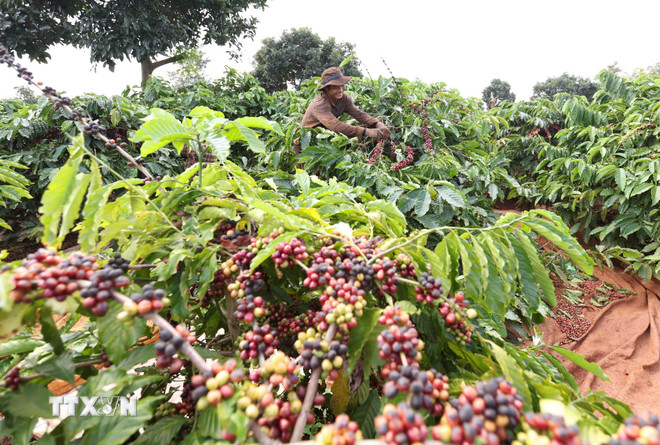

![[Photo] Cultural, sports and media bloc at the 50th Anniversary of Southern Liberation and National Reunification Day](https://vphoto.vietnam.vn/thumb/1200x675/vietnam/resource/IMAGE/2025/4/30/8a22f876e8d24890be2ae3d88c9b201c)


![[Photo] Chinese, Lao, and Cambodian troops participate in the parade to celebrate the 50th anniversary of the Liberation of the South and National Reunification Day](https://vphoto.vietnam.vn/thumb/1200x675/vietnam/resource/IMAGE/2025/4/30/30d2204b414549cfb5dc784544a72dee)
![[Photo] The parade took to the streets, walking among the arms of tens of thousands of people.](https://vphoto.vietnam.vn/thumb/1200x675/vietnam/resource/IMAGE/2025/4/30/180ec64521094c87bdb5a983ff1a30a4)











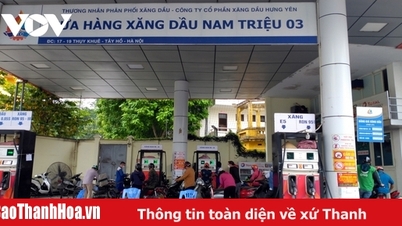


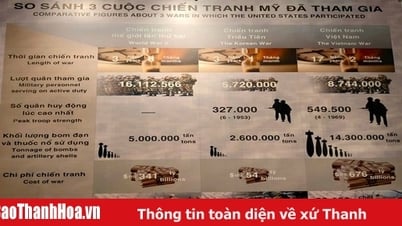

![[Photo] Performance of the Air Force Squadron at the 50th Anniversary of the Liberation of the South and National Reunification Day](https://vphoto.vietnam.vn/thumb/1200x675/vietnam/resource/IMAGE/2025/4/30/cb781ed625fc4774bb82982d31bead1e)















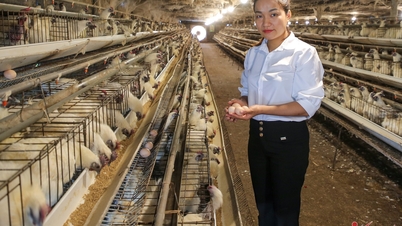


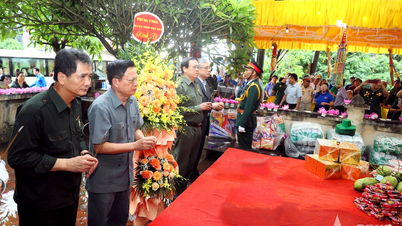
























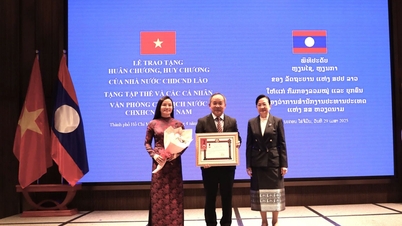



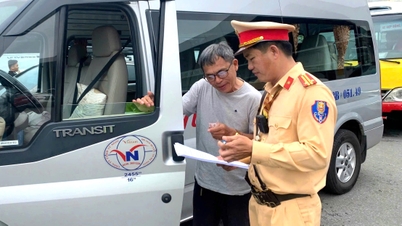



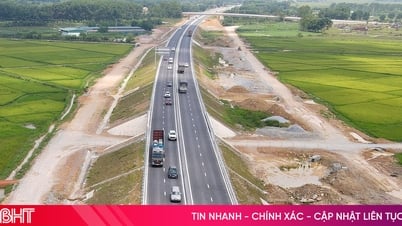
















Comment (0)